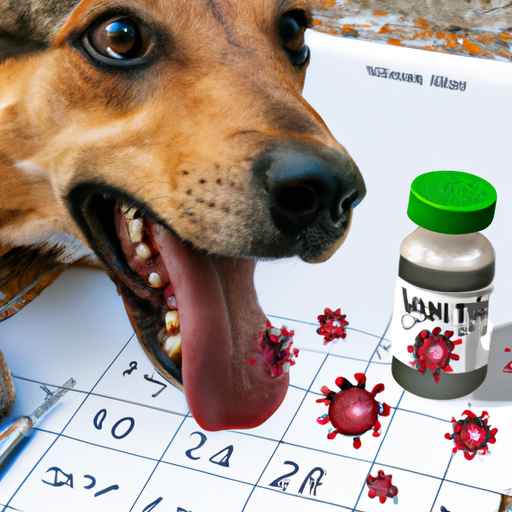Understanding Rabies and Its Impact on Dogs
Imagine a silent, invisible enemy that’s slowly but surely creeping up on your beloved furry friend. That’s precisely what rabies is like. Rabies is a deadly disease caused by a virus that attacks the central nervous system. All mammals, including dogs, can get rabies. But here’s the good news: it’s preventable through vaccination.
Duration of Rabies Vaccine Effectiveness
Now, you’re probably wondering, “How long does the rabies vaccine last?” The answer can vary. Generally speaking, most rabies vaccines for dogs are effective for:
- One year for the initial puppy vaccination (given at 12-16 weeks of age)
- Three years for the booster shots that follow the initial vaccination
Remember, the exact duration can differ based on factors like the manufacturer of the vaccine, your dog’s health status, and local laws.
Importance of Regular Vaccination
“But why does my dog need regular rabies shots?” you might ask. Simple. Regular vaccination is crucial because:
- It is mandated by law in many areas: This is to protect both pets and humans from the deadly disease.
- It ensures your pet’s safety: Vaccination is a proactive measure to keep your pet healthy.
Understanding Your Local Laws and Regulations
Local laws can play a significant part in your pet’s vaccination schedule. Some areas require annual vaccinations, while others mandate it every three years. Be sure to check with your local animal control facility or a trusted veterinarian to get the correct information.
Keeping Track of Your Dog’s Vaccination Schedule
When it comes to your dog’s health, being organized is key. Here’s a simple table you can use to keep track of your dog’s vaccination schedule:
| Age of Dog | Type of Vaccine | Next Due |
|---|---|---|
| Puppy (12-16 weeks) | Initial vaccine | 1 year |
| 1 year | Booster vaccine | 3 years |
| 4 years | Booster vaccine | 3 years |
And so on…
Just fill in the dates and set reminders so you won’t miss any important shots.
Frequently Asked Questions (FAQs)
Q: Can my dog get rabies even after vaccination?
A: While rare, it’s technically possible. That’s why it’s crucial to avoid exposing your dog to wild animals known to carry the disease.
Q: Is the rabies vaccine safe?
A: Yes, it is generally safe. However, like all medical treatments, there can be side effects. Always consult your vet if you notice anything unusual after the vaccination.
Q: What happens if I miss a booster shot?
A: It’s crucial to get the booster shot as soon as possible. Your vet may recommend revaccination.
Remember, when it comes to your dog’s health, there’s no room for compromise. Regular vaccination is not just a legal requirement—it’s a moral one, too. So, keep your dog’s shots updated and let them enjoy a happy, healthy life.



